|
The Association for Asian American Studies (AAAS) held its 2018 Conference in San Francisco from March 29th to 31st. The AAAS devoted several events at the conference to the teaching of “comfort women” history, following the passage of the resolution entitled “Supporting Remembrance of 'Comfort Women' and their Endangered History” which passed on February 7, 2017. Eclipse Rising was the main force behind the passing of the resolution.
The first event, on Thursday, March 29, was a tour and teach-in of the San Francisco “comfort women” memorial followed by presentations by Bay Area educators and activists on “comfort women” educational materials and teaching experiences. One of the main speakers at the memorial site was Ethnic Studies Professor Eric Mar, who proposed the San Francisco “comfort women” memorial installation resolution. This event was organized by Grace Yoo, Faculty Director and Professor in Asian American Studies at San Francisco State University, and Kei Fischer, Ethnic Studies Professor at Chabot College. The following educators and activists were invited to speak on educational materials on the “comfort women” history and other related issues. Kei Fischer shared about how she teaches the “comfort women” issues in the classrooms. Cecilia Gaerland, Founder and Executive Director of Bataan Legacy Historical Society, presented on her struggle for the inclusion of the WWII Pilipino history in the 2017 HSS Framework, especially the Bataan Death March. Sung Sohn, Co-Founder & Executive Director of Education for Social Justice Foundation (ESJF), introduced ESJF’s new publication, Teachers’ Resource Guide: “Comfort Women” History and Issues, and discussed some excerpts on “comfort women” from two textbooks. On Friday, March 30, Sung Sohn joined the panel discussion, “Teaching About ‘Comfort Women,” led by Professor Grace Yoo and Assistant Professor Eric Mar. She also joined the “Comfort Women” section meeting led by Miho Kim Lee from Eclipse Rising. Four activists from Osaka and about 700 scholars who attended the conference were reminded of the importance of teaching the sidelined history of military sexual slavery and strengthened their alliances with one another. These events also provided meaningful opportunities to support remembering the victims and survivors of the “comfort women” system and their voices.
0 Comments
Dosan (島山) Ahn, Changho (安昌浩) (1876 - 1938) is a Korean American pioneer who immigrated to SF in the early 1900s. He was a Korean independence activist and a leader of the Korean-American immigrants. He first settled in San Francisco's Chinatown with his wife, Helen. When Japan occupied Korea and took over control, he fought against Japan for Korea’s independence. He established the Young Korean Academy(흥사단, 興士團) in SF in 1913. He also was a founding member of the Provisional Government of the Republic of Korea in Shanghai in 1919. He also wrote the lyrics of the Korean national anthem at SF Korean United Methodist Church at 1123 Powell Street. This church was sold and now it is Quong Ming Jade Emperor Palace.
With sponsorship from ESJF and SF Korean School, Dosan’s grandson Philip Cuddy is invited to talk about the legacy that his grandfather left in San Francisco. St Michael Catholic Church 32 Broad Street, San Francisco Date: March 10, 2018 Time: 4PM – 6PM The 15th Asian Solidarity Conference held in Seoul, South Korea from March 7 to March 10, 2018, was a resounding success. The conference attracted around 200 attendees and representatives from 11 different countries – China, the Philippines, Indonesia, Japan, East-Timor, Taiwan, Australia, New Zealand, Germany, the US, and Korea.
Attendees discussed how to address unresolved the “comfort women” issues. The conference kicked off with the testimonies from two survivors from Indonesia (Nuraini and Jaherang), one from China (Chen Liancun), and one from Korea (Gil Won-Ok). The conference was hosted by the Korean Council for the Women Drafted for Military Sexual Slavery by Japan (Jung Dae Hyup) for the second year in a row. This year, Jung Dae Hyup invited two organizations from the US – Education Social Justice Foundation (ESJF) and LA Nabi (meaning “butterfly”). The attendees listened attentively as Sung Sohn, ESFJ President, described how San Francisco remembers and honors “comfort women” survivors through education and memorial installation. ESJF’s presentation focused specifically on the historical context for educating students about “comfort women” history in San Francisco and the rest of California. Sohn discussed the background of the San Francisco memorial installation and ended the presentation with a black and white photo of Eric Mar and his grandmother. She explained that Eric’s grandmother told him about the Pacific atrocities and that her stories inspired him to lead the installation of the “comfort women” memorial in San Francisco many years later. The attendees LOVED the presentation! In fact, after Sohn’s lecture, many attendees commented that the 20-minute allotment for presenters felt too short, that they wanted to hear more and that her presentation needed a full day. On Friday morning, March 9, conference attendees examined, modified, and approved a joint resolution that was drafted the previous day. The joint resolution detailed how Japan should address “comfort women” issues. In the afternoon, the attendees had a Women’s Peace March from the Duksu Palace to the Japanese Embassy to deliver the resolution from the conference. The City of Seoul blocked the streets and provided police protection for us. Unfortunately, unlike last year, the Japanese Embassy refused to accept the joint resolution. Despite the Japanese Embassy’s unreasonable behavior, all attendees enjoyed the march. The process of collectively drafting the resolution and delivering it to the Japanese Embassy was very meaningful in itself. Additionally, several teenagers who were observing the march decided to join spontaneously. |
CategoriesCategories |
Proudly powered by Weebly

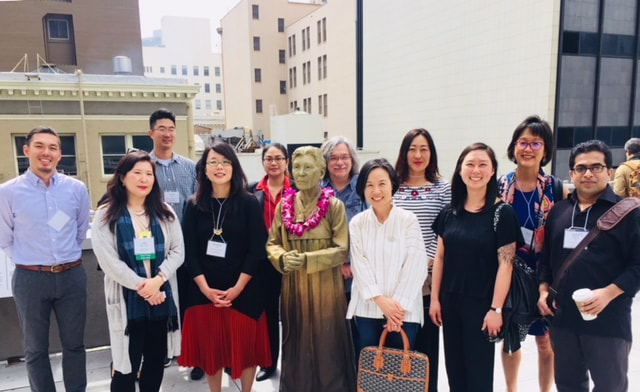
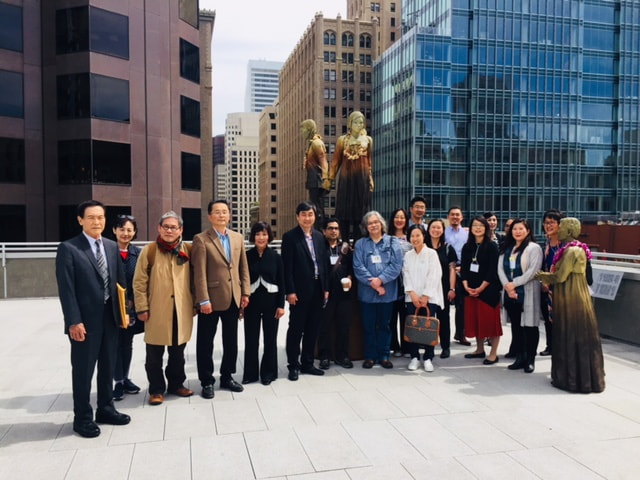
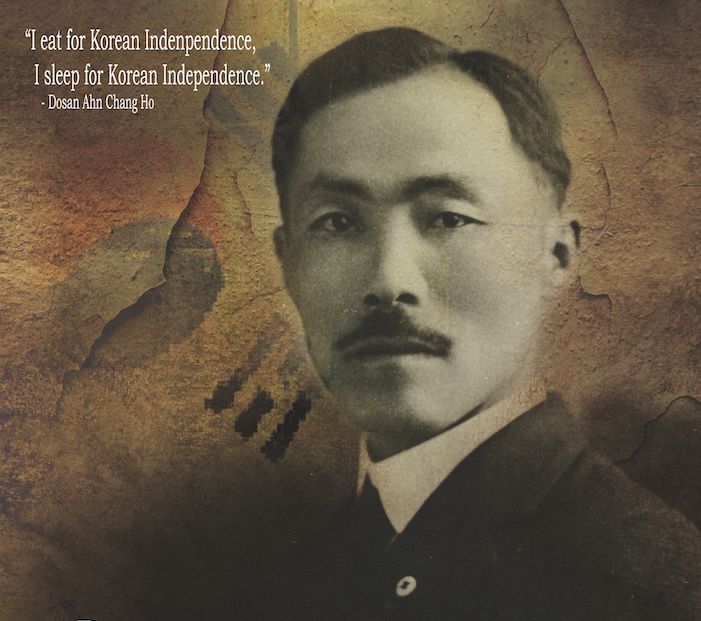
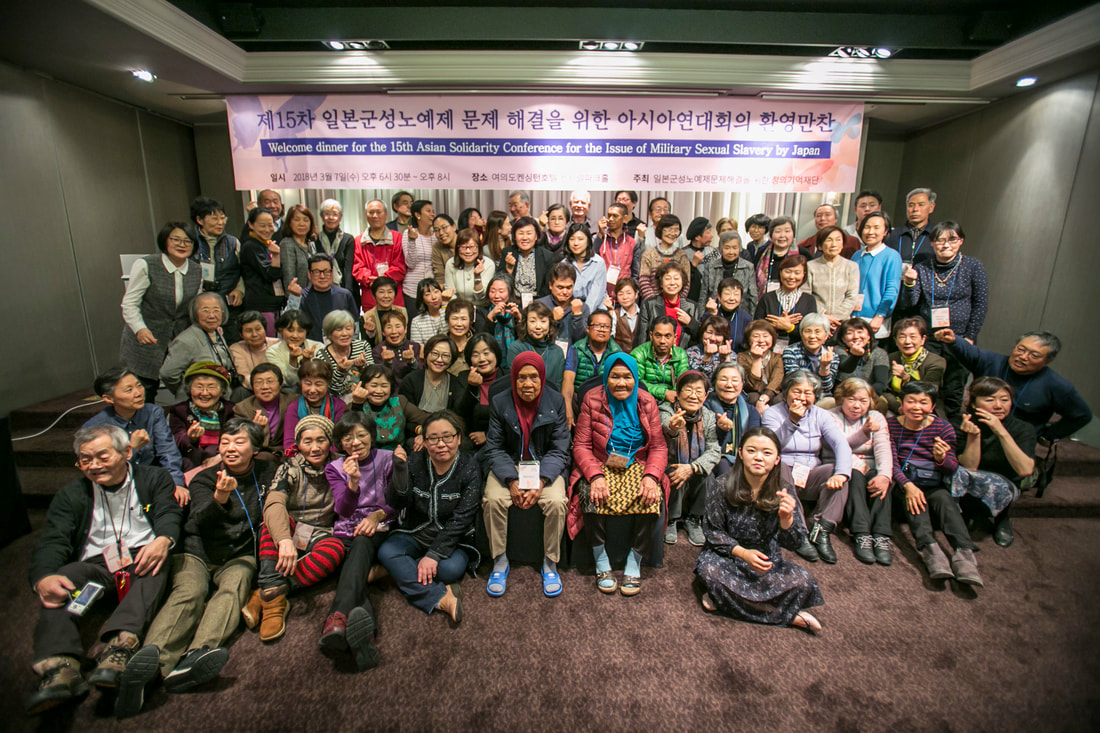
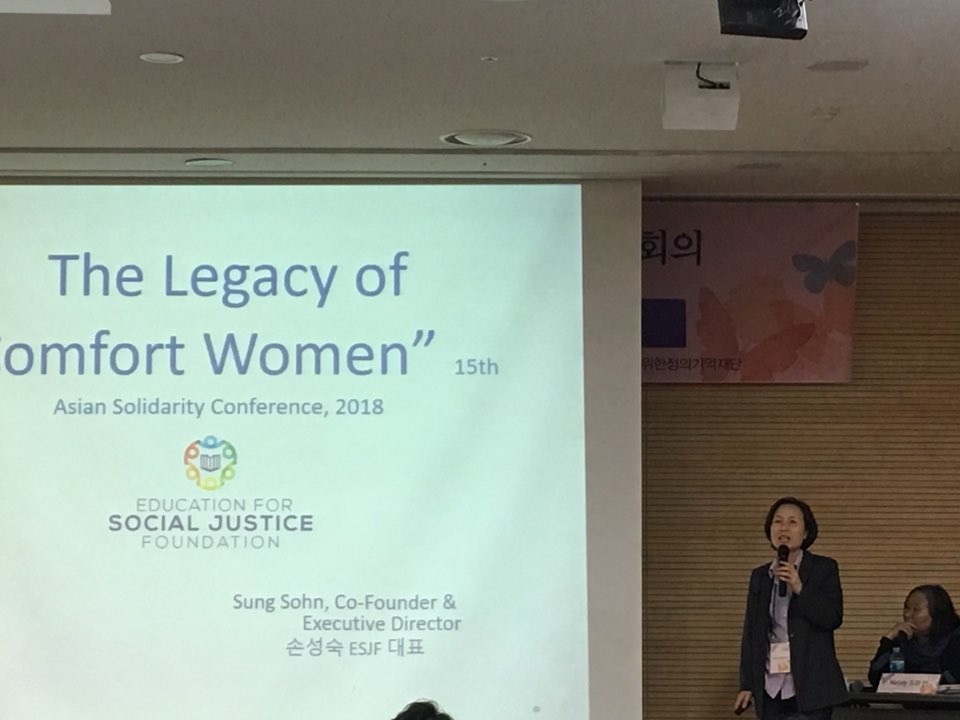
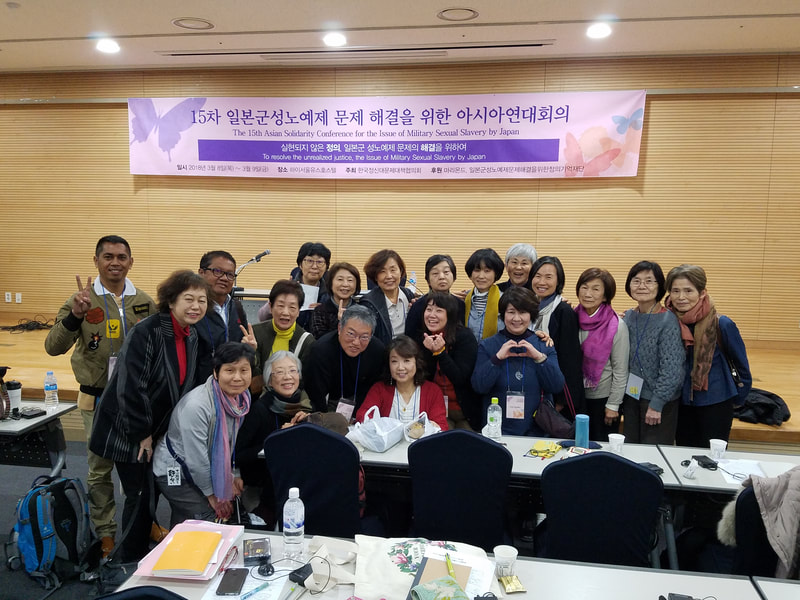
 RSS Feed
RSS Feed